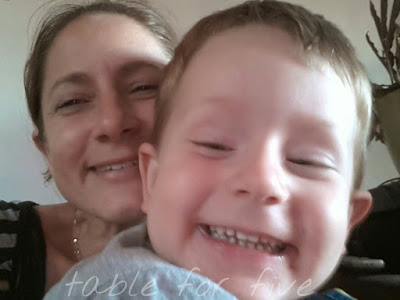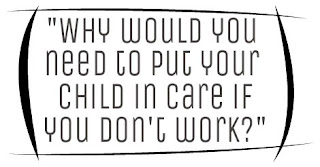Bad Mother? Bad Child? Or Could It Be Something Else?
If you ever feel that you are struggling with your child’s behavior or that something is not quite right, speak to your GP, Early Childhood Nurse or Childcare Worker about your concerns.
Parental instincts exist for a reason, don't ignore it!
There's always at least one in every circle, I’ve been a parent long enough to see that but I never knew how it felt to be “that” parent until Mr4 came along.
Something’s not right
They think I’m crazy, I know they do.
I mean, nobody says it, my friends are way to polite to just come right out with it but I read it in the small print….
“Boys huh.”, “Yep, my son’s the same.”
Little comments that allude to him being ‘normal’ (I do hate that word, what the hell is normal anyway?) and just being a boy…. Often a badly behaved, aggressive boy with no self control who is always getting into trouble. He is my 3rd son, I'm not new to the boy thing.
Inundation of dietary recommendations and disciplinary practices could be expected at any gathering we attended.
Inundation of dietary recommendations and disciplinary practices could be expected at any gathering we attended.
“Sure, I’ll try that but could you just excuse me for a moment, I think my son is wearing your cob loaf as a hat.”
Every time one of those tiny little hints hit my ears, it compounded my guilt. Oh shit, I’ve stuffed it up, I am not fit to be a parent, where did I go so wrong?
I would nod and smile but inside, I was tearing myself apart.
Welcome to Guilt City, population... Me.
When we were referred to the early intervention waiting list, I felt as though we were taking up valuable waiting list space. They would tell me there was no problem, that I was just parenting wrong, they would confirm what everyone else had already said (or not said) to me.
It was a huge relief when his occupational therapists confirmed a Sensory Processing Disorder. Yes, I know that's a little wrong but unless you’ve been in that torrid cycle, trying every parenting trick in the book and getting no results, month after month after month, receiving cold stares in the supermarket for your lack of control… you’ve no right to judge me.
Besides, I’ve already done enough of that myself.
I don't blame my friends and family for their inferences. Looking objectively at it, I think as mothers we are programmed to reassure each other that our kids are normal and healthy and that we are worried about nothing.
But here's what they don't see:
They don't see the hurt that he feels for always being “that” child. Constant negativity has a deep impact on even the most resilient of people.
They don't see when we abruptly head for home, seemingly for no reason, the glazed and vacant look in his eyes. The look that tells me a storm is about to hit.
They don't see the episode that follows, they don't experience the heartbreak of trying hold your struggling child still, while he works himself into a frenzy. Unable to stop.
They don't see the tears of relief and despair I cry after he finally falls asleep.
They don't know because this, this is not ‘normal’!
Studies have shown that Sensory Processing Disorder (SPD) effects at least 1 out of every 20 children. There are studies that suggest the numbers may be as many as 1 in 5, so I ask again, what is ‘normal’?
Symptoms have such a broad spectrum of severity that it can be difficult to identify in children who may seem to function ‘normally’ with most day to day activities.
While SPD is a relatively new diagnosis, it is not a new disorder. If we know what to look out for, I’m betting every one of us knew or knows someone or is affected by SPD themselves. Some would have overcome their difficulties while others continue to struggle through adulthood. What this diagnosis means in children, apart from alleviating some of that parenting guilt, is that parents and teachers now have the tools to assist these children in overcoming their individual difficulties earlier on in life.
SPD is not the end of the world
Although it can be exhausting and extremely frustrating, on the scale of things children could be affected with, SPD doesn't even make the rating. These kids just function a little differently, it won't kill them and it won't stop them from living a long and happy life as long as we, as parents, give them every chance at it.
Through learning better parenting, management and integration skills tailored to his needs, my son can look forward to receiving less negative feedback, more positive praise and greater understanding from others of who he really is . Making him a happier, healthier kid.
Isn't this ultimately what we all want for our babies after all?
12 months from beginning early intervention appointments, Mr4 is progressing well. He has adjusted well to preschool and is on track to be ready to start school with his peers next year.




Comments
Post a Comment